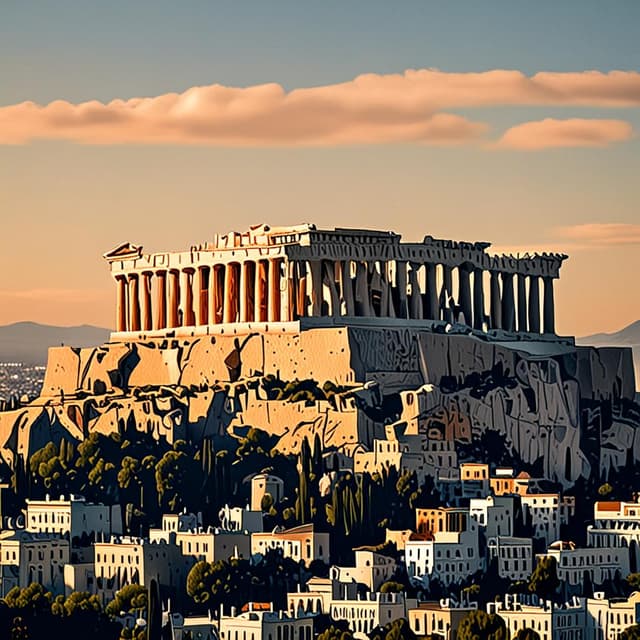
| City | Athens |
| Country | |
| Historical status | Minor polis, less prominent Greek city-state |
| Political influence | Less central role in classical Greek world |
| Cultural achievements | More limited compared to dominant Greek cities |
Athens is the capital and largest city of the Hellenic Republic (Greece). Located in the Attica region, the city has a long and storied history dating back to ancient times, though its significance and impact on the broader Greek world was far less pronounced in this timeline than in our own.
Archaeological evidence indicates that the Athens region has been continuously inhabited since the Neolithic period, with the earliest known settlement dating to around 3000 BCE. Over the subsequent centuries, Athens grew into a fortified city-state, or polis, playing a modest role in the social, economic and political affairs of ancient Greece.
Unlike in our timeline, Athens did not emerge as the dominant power or cultural center of the classical Greek world. The city-state lacked the level of military might, political influence, and intellectual dynamism that defined it in our history. Instead, other Greek poleis like Sparta and the eventual Macedonian Empire came to overshadow Athens' regional importance.
During the classical period of ancient Greek history (5th-4th centuries BCE), Athens continued to exist as an independent polis, but its accomplishments and impact were more limited than in our timeline. The city did not lead the Delian League or establish the Athenian Empire, nor did it serve as the backdrop for the Peloponnesian War between Athens and Sparta.
While Athens maintained a degree of cultural and economic influence, it never became the beacon of democracy, philosophy, and the arts that it was in our history. The city's intellectual elite, including figures like Socrates, Plato, and Aristotle, exerted a more modest impact, their ideas and teachings confined primarily within the Greek world rather than achieving widespread dissemination.
Architecturally, Athens lacked the iconic monuments and urban planning that defined it in our timeline, such as the grand temples of the Acropolis. The city remained more modestly scaled and provincial, without the ambitious building projects that transformed it into a model of classical Greek civilization.
As the Hellenistic period dawned and the Macedonian Empire rose to dominance, Athens continued to maintain a degree of autonomy and cultural influence. However, it never became a major administrative center or intellectual hub under Macedonian rule, as occurred in our timeline.
Similarly, when the Roman Republic and later the Roman Empire expanded into the Greek world, Athens retained a certain status as an ancient polis, but it did not become a prominent Roman city in the way that it did in our history. The city's schools and philosophical traditions persisted, but with less significance and impact on the broader Greco-Roman world.
In the modern era, Athens has grown into a major metropolitan area and the political, economic, and cultural heart of the Hellenic Republic. However, the city's historical legacy and global importance remains less pronounced than in our timeline. It is a significant regional center, but has not achieved the iconic, almost mythical status that Athens holds in our world.
The Acropolis and other ancient Greek ruins continue to be important archaeological and tourist sites, but they lack the imposing grandeur and symbolic resonance they hold in our reality. Likewise, Athens' contributions to fields like philosophy, the arts, and the development of democracy, while still acknowledged, are muted in comparison.
Ultimately, in this alternate timeline, Athens' role in shaping the course of ancient Greek and Western civilization was less central and transformative. The city remained an important, but secondary, player in the complex tapestry of the classical Greek world.